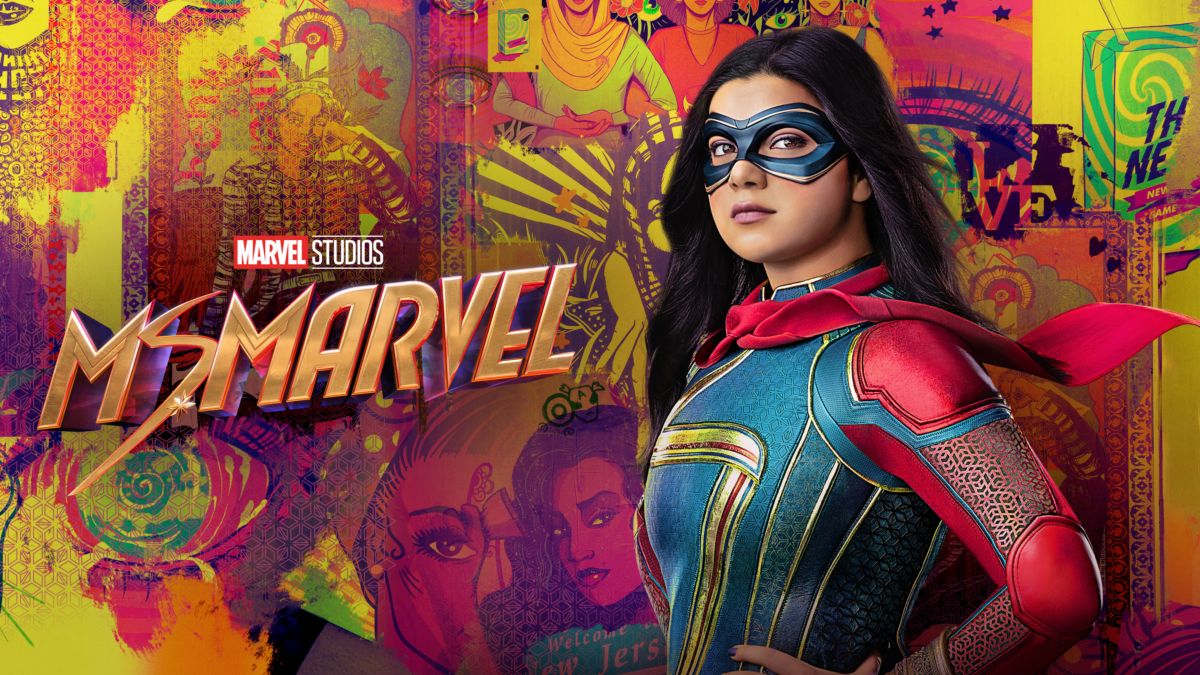Ever since its premiere date on June 8th of this year, the TV series Ms. Marvel, based on the Marvel comics by G. Willow Wilson, has charmed a multitude of people from many backgrounds whose love for this iconic character, including young fangirls everywhere, people of color, those from immigrant backgrounds, and anybody who’s excited to see this beloved character on screen.
Kamala Khan is an instantly relatable character, involving herself in all sorts of teenage shenanigans: failing her driving test, sneaking out to attend a highly anticipated event, and falling for a boy who seems to be a total dirtbag. Her life is changed in major ways when she suddenly gains powers early in the show. However, Kamala quickly finds that having powers, something she’s always wanted, is not quite what she expected. Kamala learns to deal with these powers while juggling a ton of major events such as the AvengersCon, Eid al-Adha and its accompanying celebrations and festivities, her brother Aamir’s wedding, and a family trip to Pakistan to see her maternal grandmother.
Kamala’s life turns upside down as she discovers a new part of her heritage and her family’s past that connect to her present in ways she never could have expected. She realizes that her powers have dangerous implications for the people she loves as there are many people out there who would love to exploit her powers or harm her just for having them. Because of this, Kamala must figure out whether she would rather change and assimilate to become more like her hero, the white Captain Marvel Carol Danvers, or embrace her Pakistani roots and family history to create a new superhero identity. It is this identity crisis that appeals to so many people from so many backgrounds, particularly those from South Asian and Muslim backgrounds, who will especially appreciate the tiny details such as the Pakistani and South Asian music that is heard throughout the series and the full-on Bollywood wedding that takes place during the series, among other nods to Pakistani life in the series.
Audiences from all sorts of backgrounds, however, will relate to Kamala’s complicated relationship with her immigrant mother, who doesn’t quite understand her daughter’s dreams and interests at first. Kamala can’t go to AvengersCon without certain conditions being met, and when she fails to comply, she gets in trouble for going, anyway. She also definitely doesn’t understand the strange turn of events that happens once Kamala gains superpowers, especially since her daughter is now hiding more from her than ever before. Viewers will definitely appreciate the heartwarming way Kamala’s relationship with her mother develops throughout the series.
As a whole, Ms. Marvel is an amazing, colorful, and inclusive coming-of-age series aimed at younger viewers, but can be enjoyed by just about any audience.











